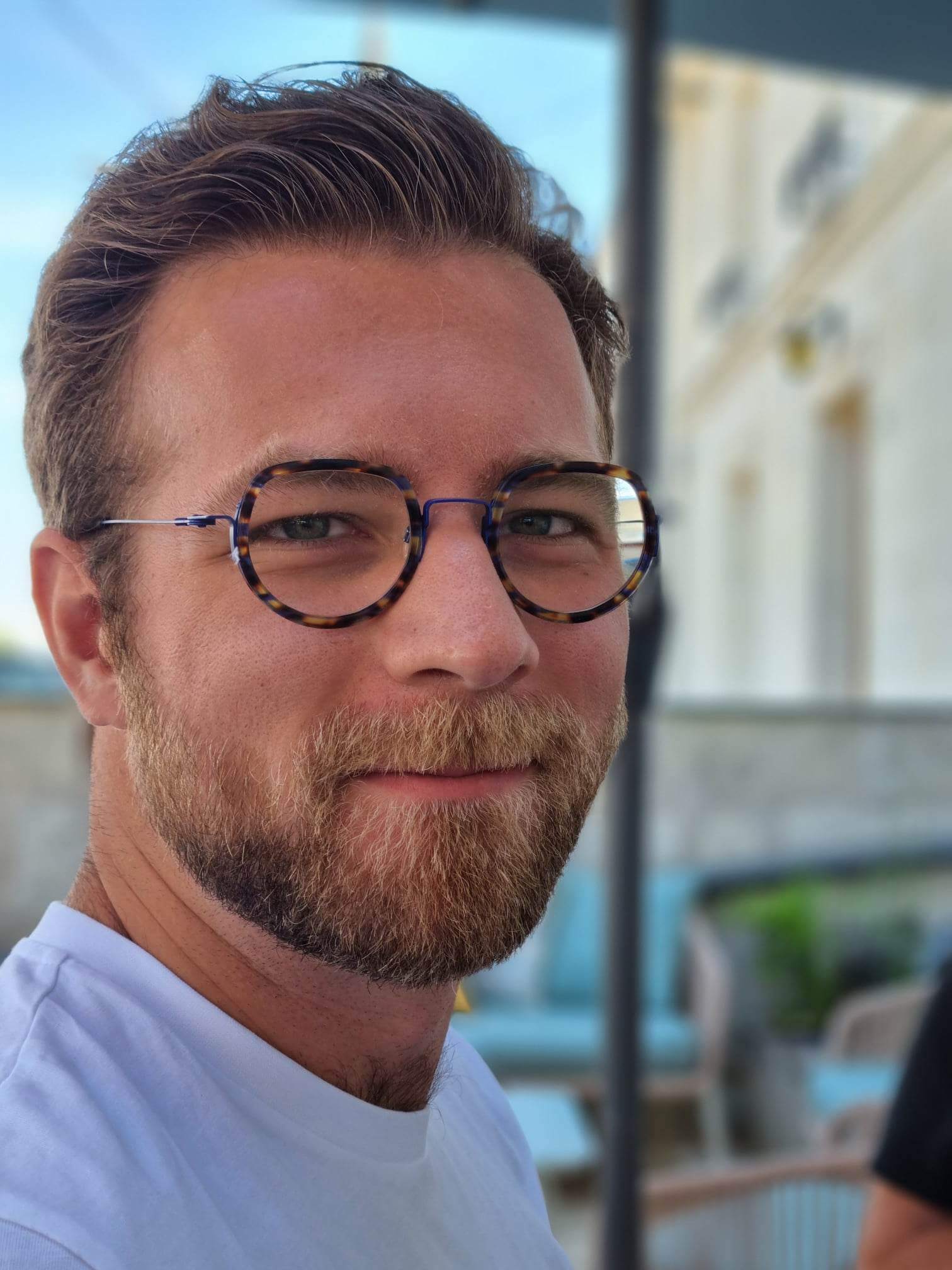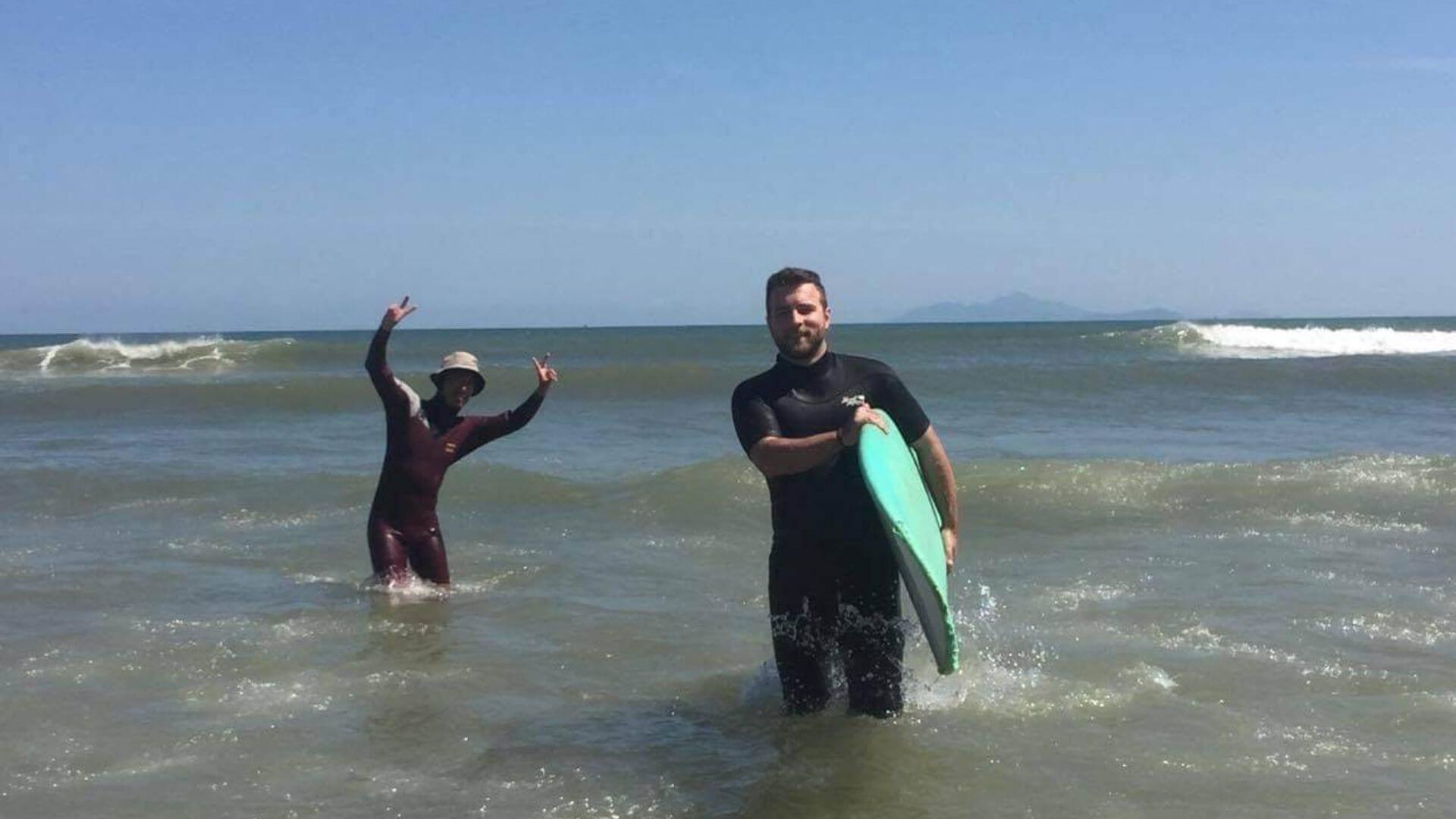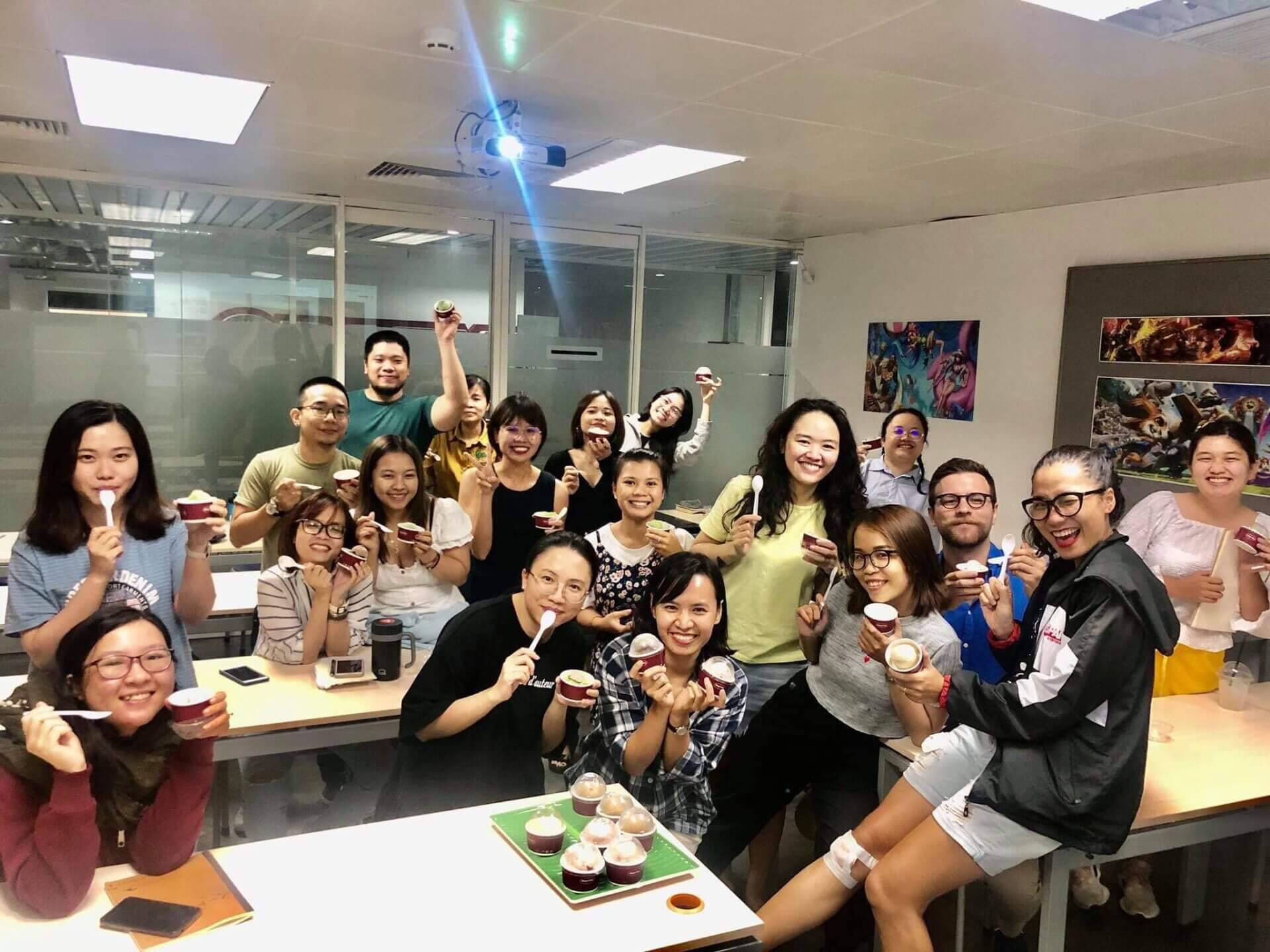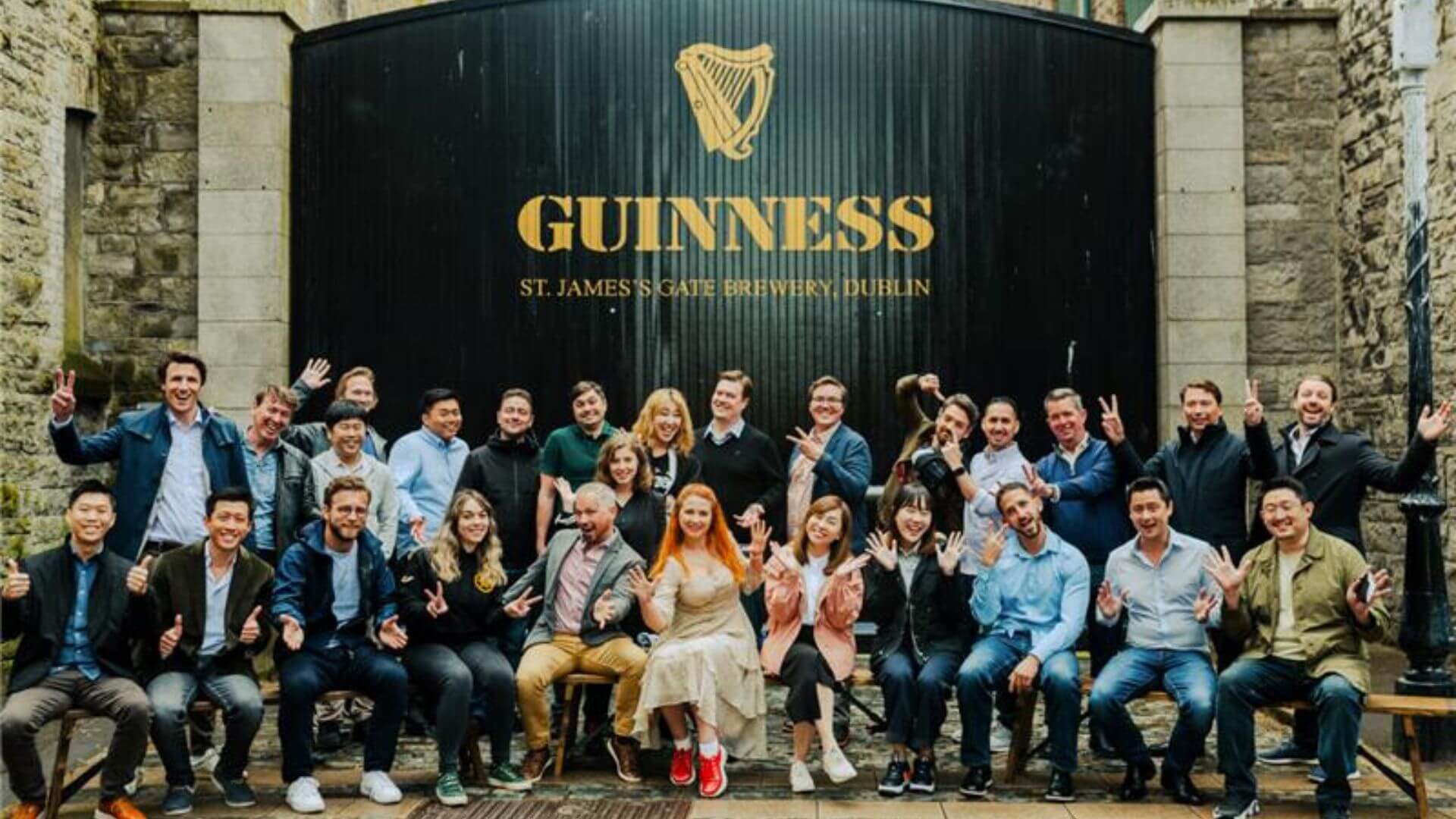This article is part of Virtuos Insider, a series of interviews where Virtuosi share about their careers and experiences in the company and video game industry at large. In this installment, we chat with Pierre-Antoine Cohade to find out about his role as a Co-Development Success Manager (CSM) and his evolving career journey at Virtuos.
Change can be daunting, especially so in the dynamic world of video games, but Pierre-Antoine – affectionately known to our teams as Paco – is not one to shy away from a challenge. From a management trainee to a producer managing teams at Sparx* – a Virtuos Studio, he has since moved halfway across the globe to serve in his current role as a CSM based in Montreal, Canada.

Please introduce yourself and tell us about a personal hobby you enjoy in your free time.
I’m Pierre-Antoine, but everyone calls me Paco! I’m currently based in Virtuos Montreal as a CSM specializing in production. I’ve always been a gamer, so I’m super excited for this summer with games from my favorite franchises being released, such as Final Fantasy XVI, The Legend of Zelda: Tears of the Kingdom, and Armored Core. Besides that, I play the guitar, compose music, and watch films regularly. Scuba diving is another passion of mine, though it’s something I try to do every time I’m on holiday due to limited opportunities in Montreal.

Tell us about your career journey. You previously worked in other industries – what attracted you to move into video games?
I was majoring in Entrepreneurship Studies at a business school in France for my master’s degree, and moved to Shanghai for an internship in my final year. I knew I wanted to work abroad, but wasn’t sure about the industry, and I ended up working as a business developer for a small diamonds brokerage after graduating. In the same year, I registered for a one-year Mandarin program in a Chinese university as I wanted to gain a new skill while reflecting on my career path.
“I realized two things: I wanted to work in an industry that I’m passionate about, and I wanted to keep working abroad in an international environment.”
Video games have always been a huge part of my life, and I felt that I could leverage my project management knowledge to work as a producer. I applied to Virtuos Shanghai, but after a few interviews, I decided to take up a role at Sparx* based in Vietnam. Vietnam is a country that I‘m familiar with and I was very open to move, so I accepted the offer and started as a management trainee in August 2018.
How did you get from management trainee to CSM at Virtuos? Was the transfer part of your plan?
I spent four great years at Sparx*; first as a management trainee, before progressing into my role as a producer to manage the concept art team and a small team of level and environment artists, while acting as a line producer on some bigger projects.
“I absolutely loved my time at Sparx*; the people I worked with were awesome, the projects were exciting and challenging, and Vietnam was a fantastic and fascinating country to live in.”

Being well-settled in my role, I started to think about next steps. I knew I wanted to continue growing and experience something new in a different place. In addition, I wanted a role where I could leverage my production skills.
When I shared my interest in working with the Virtuos North America team while discussing my career trajectory with Samuel Stevenin, then General Manager of Sparx*, he redirected me to Jake DiGennaro, then General Manager of North America. I was introduced to different positions in the team, notably the CSM role specialized in production. The role looked perfect for me; I could use the production knowledge I had accumulated at Sparx* while developing new skills in sales and business development.
What was the internal mobility process like for you, and what kind of support was provided?
Everything was straightforward at Virtuos! It took just a few months for me to wrap up and transfer everything I was doing at Sparx*. Then, the HR at Virtuos Montreal guided me through the entire process of moving from Vietnam to Montreal. Every document I had to provide or appointment I had to book were clearly listed and explained, and I could ask questions and get an answer straightaway.
The only struggle I encountered was the time it took for my visa application to be approved, but there was nothing that either I or Virtuos could do about that. I think this is not uncommon when transitioning abroad for work – visas are a long and tedious process almost everywhere!
How would you describe the role of a CSM?
“To me, co-development success management is a support function with one main goal: to ensure the successful delivery of the project.”
Our support in a project can start as early as supporting our Business Developers during client visits in sharing detailed art or game production knowledge. In my case, topics I touch on include team composition, good production practices, and at times, technical set-up. We intervene as needed in the later stages too, sometimes acting as a “firefighter.” Overall, we are there to ensure that the project is running smoothly, and act as a fresh pair of eyes by giving honest assessments and suggestions. A CSM’s allegiance is to the project, which gives us the opportunity to work with both the team and clients to see what can be improved in terms of quality, communication, or workflow.

What were some of the transferrable skills from your past roles? Was there a new skill you had to pick up quickly?
The main reason I could transition seamlessly in my current role was because of my production expertise. My skills, such as team management, project planning, risk mitigation, and project data analysis, are very useful in my role as a CSM.
One interesting skill I had to learn was looking at things from a higher level and anticipating even more than a producer would usually do. As a producer, it can be difficult to do so as we are so deeply involved in the day-to-day that we don’t necessarily have the time to sit down and assess the overall quality of our collaboration with the client. Part of the reason why I wanted to become a CSM was also to have a bigger picture view of things.
Another new skill is the amount of autonomy and proactivity that is required. As compared to a producer, I now have the freedom and the responsibility to tackle things that I think are necessary for the project’s well-being. These things include working with the client to secure a long-term booking, mitigating a potential risk I discovered, or even finding ways to improve communication channels. It is extremely interesting and rewarding, but also very challenging at the start as I was not used to having that much autonomy.
What is one of your most memorable experiences from working in the video game industry?
I’d say the most memorable one among many great experiences was when I shipped my biggest project at Sparx*. We had over 100 artists working on it at peak, and it was challenging to say the least! We were doing most of the environment art from the very first concepts up to the final implementation in game. I’m very proud of what the team has achieved, and I have fond memories of my time working with them.
What advice would you share to anyone who looking to advance their career in a different field?
I have no better advice than to simply talk about it! Sometimes I think that people are worried about even asking about it, as they don’t think they have the skillsets or experience. Even if that’s the case, your manager can help you identify what’s potentially missing and help you set clear milestones for you to reach that objective.
Thank you, Paco, for sharing your insights on being a CSM and your internal mobility experience. We hope that your story will encourage others to fearlessly embrace change and pursue their passions in the ever-evolving world of video games.






